Abol, Tona, Baraka: behind the coffee ceremony
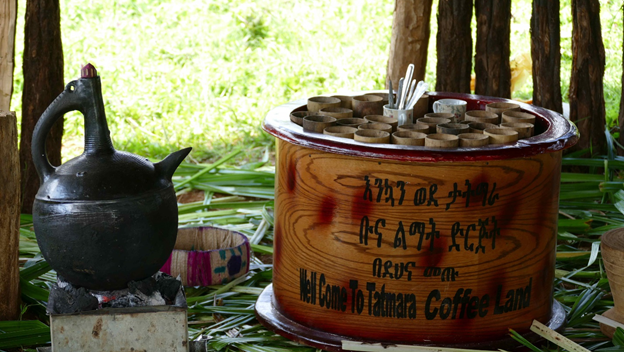
Ethiopia...
The cradle of coffee and a must for any amateur a bit adventurous.
The smell of buna or buni (coffee) emanates from every corner. Wherever you go, you will find the typical small wooden table with the traditional small cups on it and the jebena (traditional ceramic coffee pot) for a cup of coffee in accordance with the tradition. Or almost...
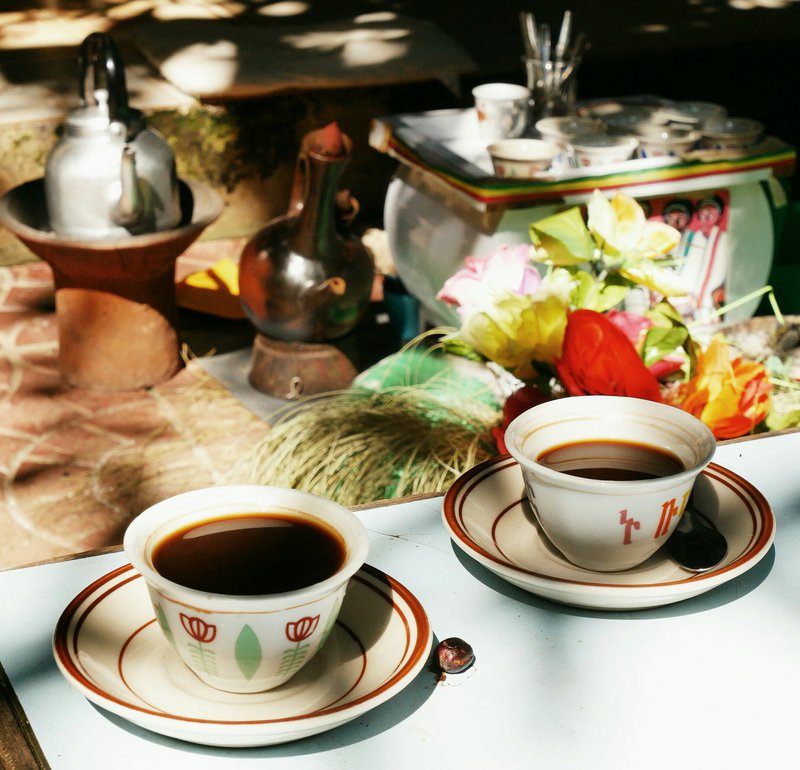
The ritual of the coffee ceremony does not really fit for the frenzy of the cities. Today people usually just take one cup of coffee on the fly. Sometimes they can linger a little more and risk a second one.
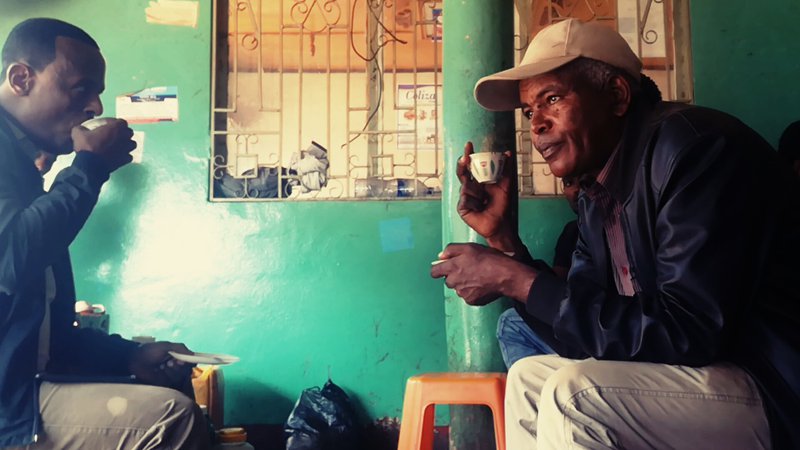
But it is in the intimacy of the homes and out of sight that one can attend the complete ritual of the coffee ceremony.
In many villages, it is considered a mark of respect, friendship and hospitality to welcome relatives or guests with a coffee ceremony at whatever the time of day.
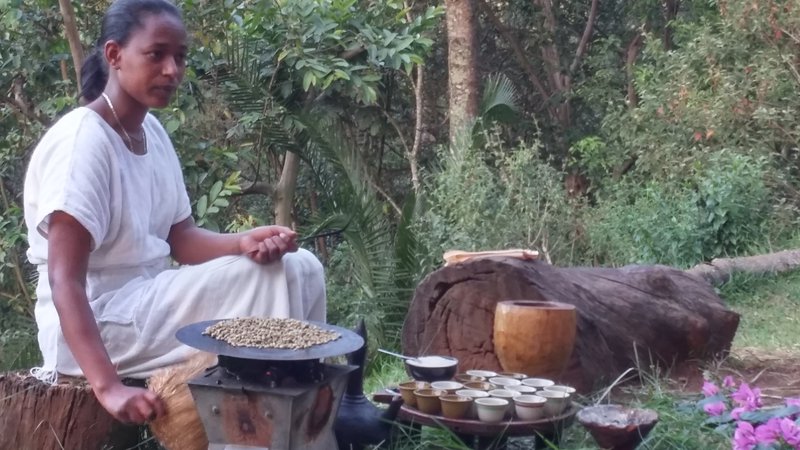
It is the women who perform this almost sacred ritual. They start by spreading herbs and fresh flowers on the floor. Incense is also burned to ward off evil spirits throughout the ceremony. The jebena is then filled with water and placed on hot coals.
The green coffee beans are first cleaned to remove potential stones and dust before roasting them manually on a kind of metalic pan.
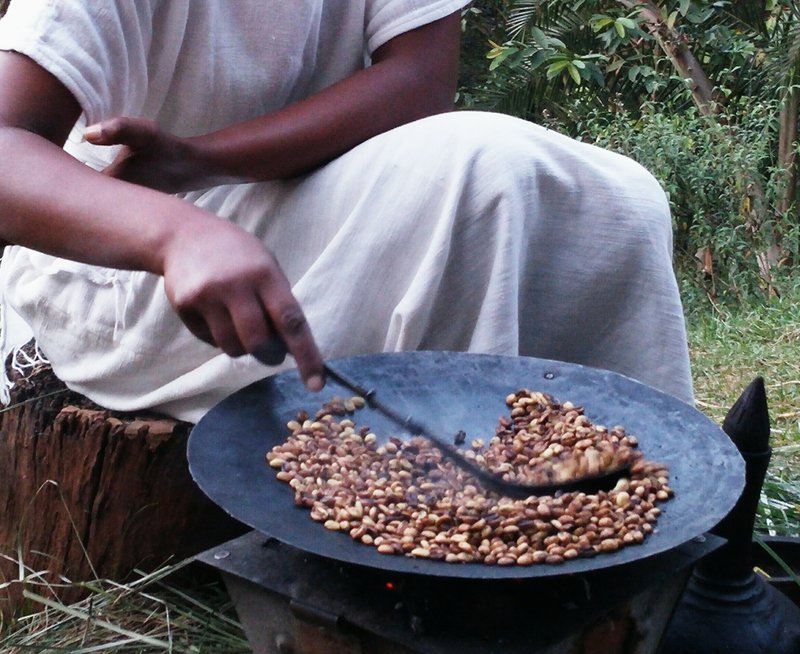
The powerful aroma of roasted coffee is considered an important aspect of the ceremony.
The coffee is then ground coarsely using a mortar - a small thick wooden bowl called mukecha - and a wooden or metal pestle called zenezena,
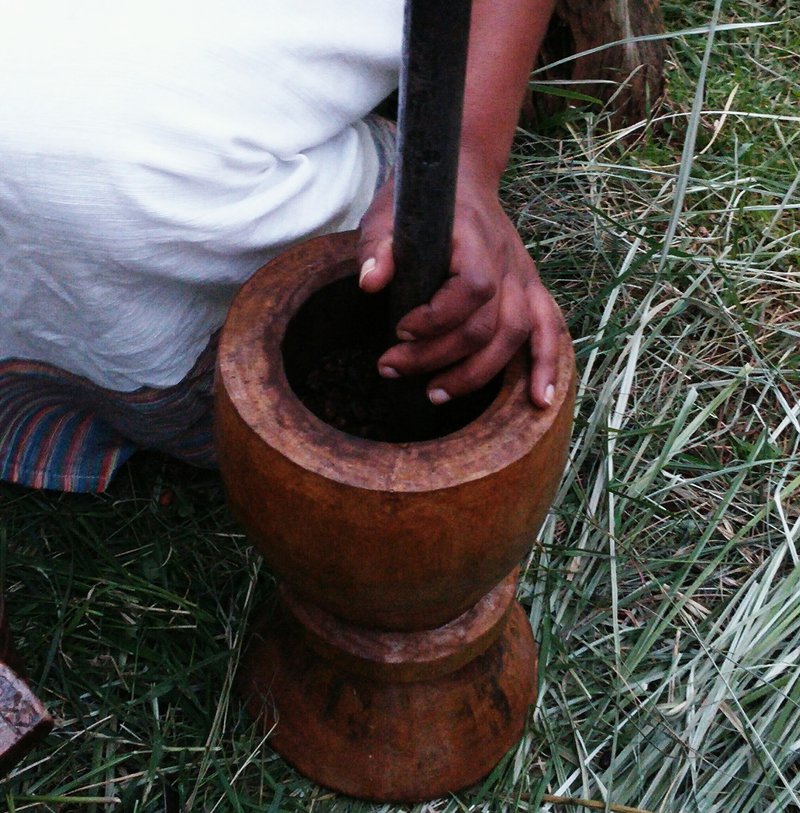
before being poured into the jebena and put back on the fire until boiling.
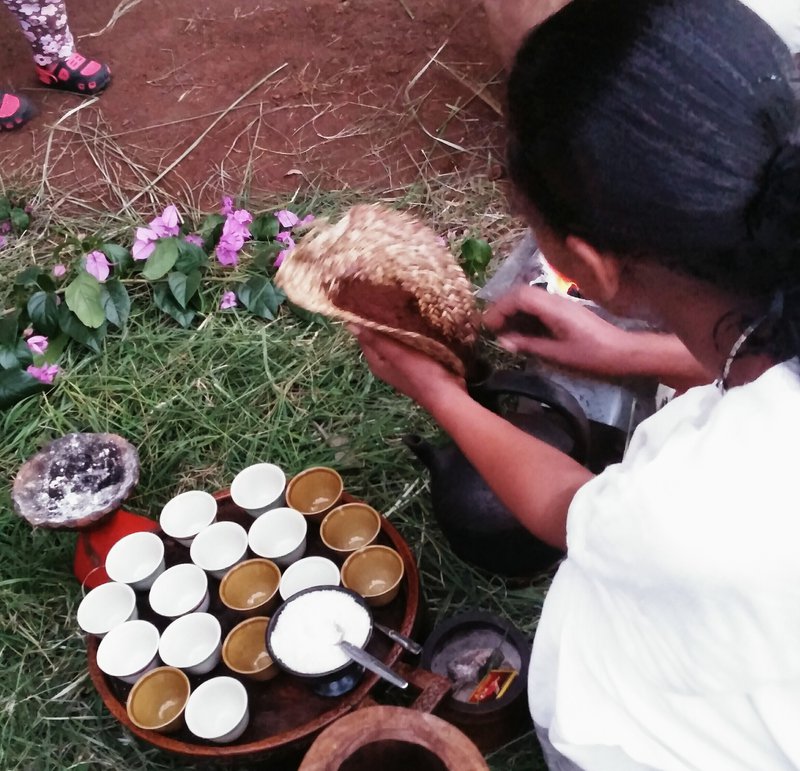
The little cups are then filled right to the brim, normally with sugar, and served three times. Abol, Tona, Baraka are the name of the services, each one with its own meaning.
"The first is for pleasure.
The second provokes contemplation.
The third is a bestow of blessing. "*
* Quote from the book The Various Flavors of Coffee by Anthony Capella
In some regions of Ethiopia, butter or honey may be added. The coffee can also be accompanied by grilled barley (kolo), peanuts or popcorn.
We also discovered some regional peculiarities. The jebena for example, does not have the same shape everywhere.
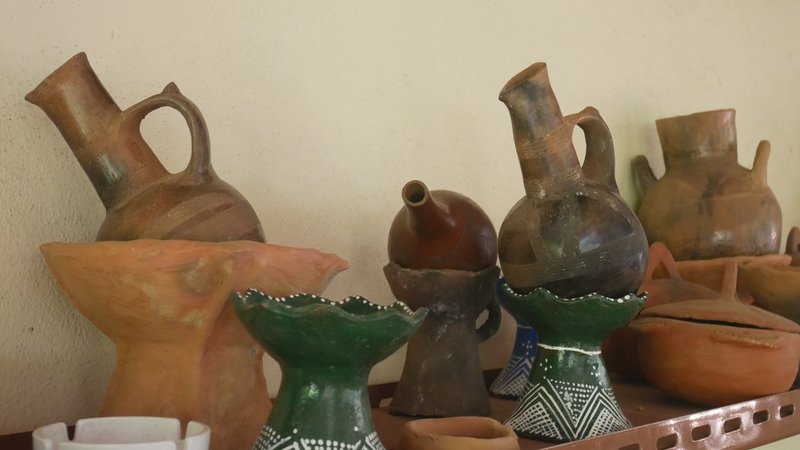
Without spout on the side (and sometimes without handle) in the region of Tigray
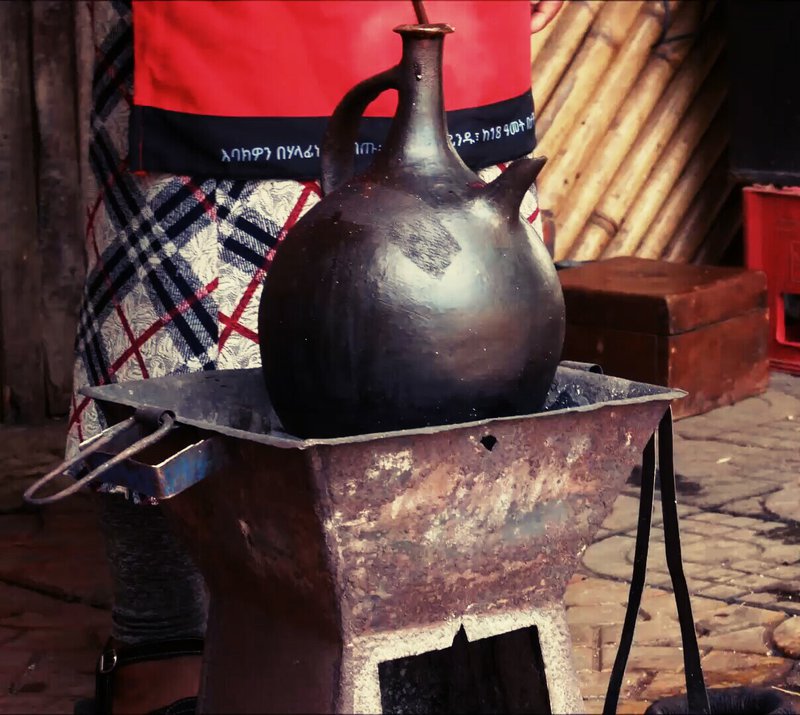
Round base in Jimma area
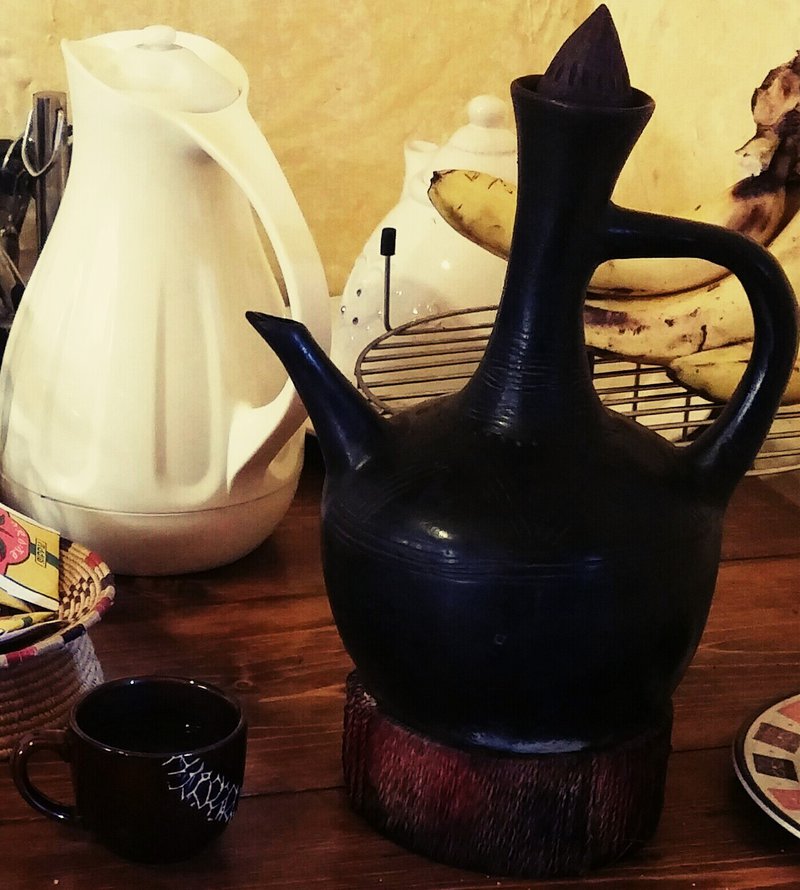
More sophisticated in Addis Ababa and Amhara regions
But whatever their origin, their age or their differences, all the Ethiopians are unanimously attached to the tradition of the coffee ceremony.

 Ethiopia
Ethiopia Colombia
Colombia Guatemala
Guatemala Indonesia
Indonesia Kenya
Kenya Mexico
Mexico Philippines
Philippines Tanzania
Tanzania Uganda
Uganda